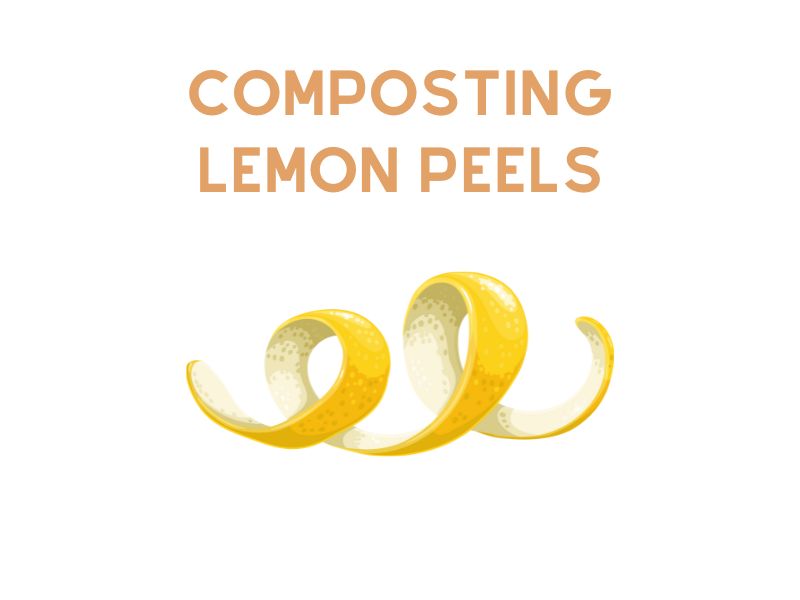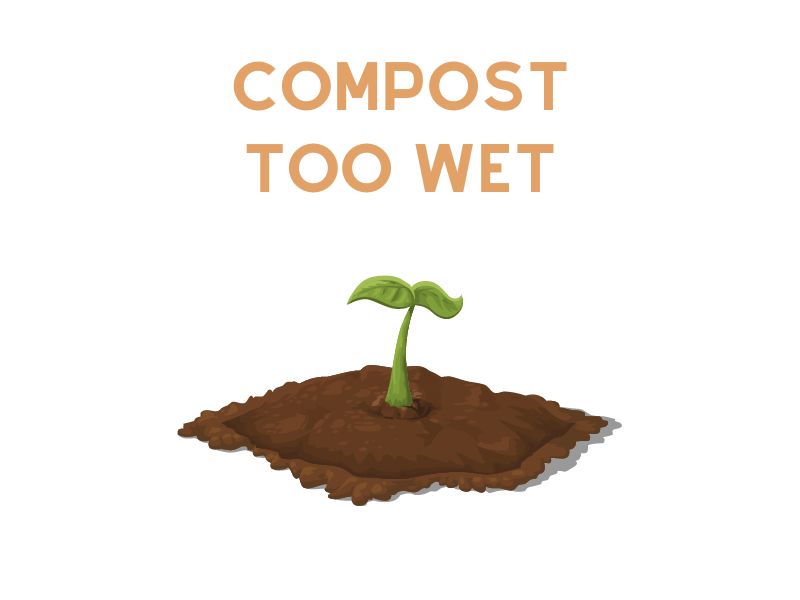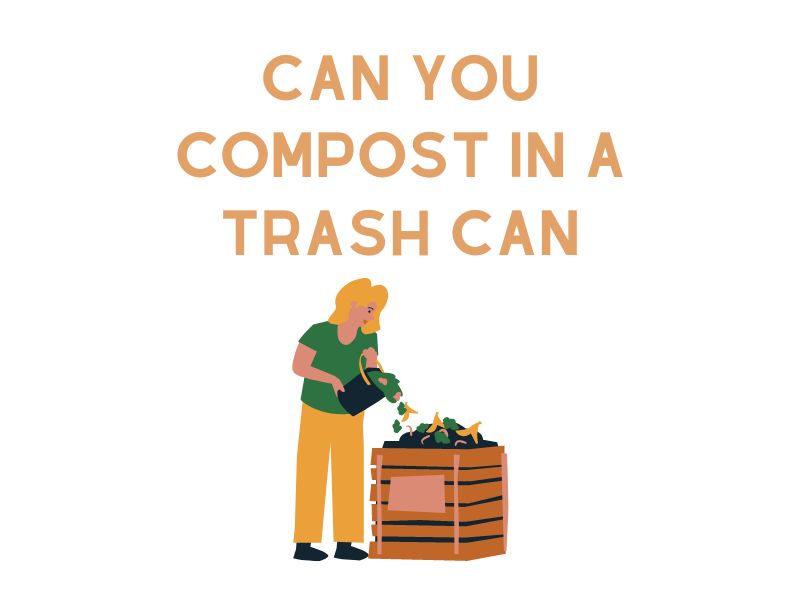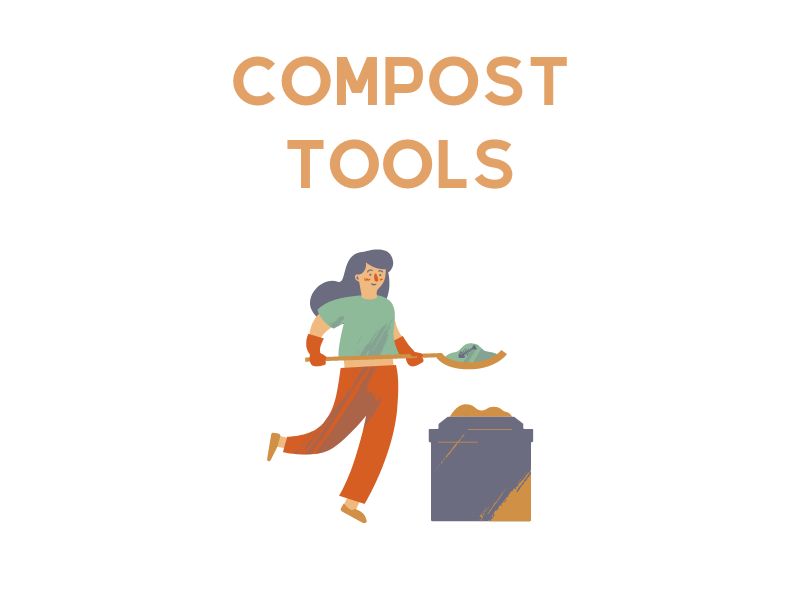Composting, as a practice, has long been the gardener’s secret weapon. It is a natural process that transforms everyday organic waste into a nutrient-packed elixir, often referred to as ‘black gold,’ owing to its profound benefits for the soil. In essence, it is a nature-led recycling program that enables us to return borrowed resources back to the Earth, enriching the land that sustains us.
However, as straightforward as composting may seem – collecting kitchen scraps and garden waste and letting nature do its job – it also comes with certain complexities. One of those complexities is knowing what you can and cannot compost. For many organic material types, the answer is straightforward. However, some items, such as lemon peels, present a not-so-clear answer and have become a point of contention amongst gardeners and composting enthusiasts.
This citrusy conundrum might seem trivial, but it’s an important one to dissect. With many households regularly producing citrus waste, particularly from lemons, knowing whether to compost these vibrant peels can have a significant impact on our composting practices and overall sustainability.
So, the question that we’re here to answer is: can you compost lemon peels? This inquiry seems simple on the surface, but as we delve deeper, we will find it is layered with complexity. So, let’s peel back the layers of this controversy and expose the juicy details to find the truth.
Understanding Lemon Peels
Before we navigate the main question, it is crucial to gain an in-depth understanding of the structure and composition of lemon peels. Lemons, as members of the citrus family, have a unique structure that distinguishes them from many other fruits.
The outer layer of lemon is what we refer to as the peel or the zest. It’s this part that houses the majority of the fruit’s essential oils and gives lemons their zingy fragrance. It’s characterized by its bright yellow color and slightly bumpy texture.
Underneath this peel, you’ll find a white layer called the pith. While it lacks the vibrant color and aromatic punch of the outer peel, it’s an integral part of the fruit. The pith tends to be bitter in taste, which is why it’s often removed when lemons are used in cooking.
When it comes to nutritional composition, lemon peels are a powerhouse. They are packed with vitamins, minerals, and fiber. They’re rich in vitamins C and D, which are essential for human health but also play vital roles in plant growth and development. Calcium and potassium are also plentiful in lemon peels – these minerals are crucial for the proper growth of plants, contributing to strong cell walls and assisting in various metabolic functions.
Further, lemon peels contain limonene, a natural compound that is largely responsible for the citrusy smell we associate with lemons. This compound is also known to have natural antimicrobial properties, which can potentially impact the decomposition process in a compost pile.
In essence, the lemon peel is not merely waste; it’s a repository of valuable nutrients and natural compounds. But how does this play into the debate of whether or not they should be composted? Let’s continue peeling back the layers to find out.
Controversy: Can You Compost Lemon Peels?
Now, we reach the heart of the matter, the enduring debate that has left many environmentally-conscious individuals and garden enthusiasts in a dilemma: can we compost lemon peels? To navigate through this ambiguity, we must first understand the reasons behind the controversy.
The first key issue rests on the nature of lemon peels themselves. Lemons, as most of us know, are acidic. Their tangy flavor and sharp zest come from the citric acid they contain. The peels, retaining this acidity, are thus perceived as potential troublemakers in a compost pile. The primary concern is that the acidic peels may alter the pH balance of the compost pile, turning it more acidic than is optimal. This shift could potentially impede the activity of the microorganisms essential for the composting process.
The second concern associated with composting lemon peels is their strong aroma, a result of the essential oils they contain. There’s a fear that this potent smell might act as an invitation to pests, attracting unwanted visitors such as rats and flies to the compost pile. In a composting system that strives for a harmonious balance, the introduction of pests can disrupt the process and present challenges for those maintaining the compost pile.
Together, these concerns form the crux of the controversy against composting lemon peels. However, like many debates, there is another side to the story. To fully explore this issue, we must also investigate the counterarguments that champion the inclusion of lemon peels in the compost pile.
Counter Arguments: The Case for Composting Lemon Peels
The debate on whether or not lemon peels can be composted is not one-sided. A strong case stands in favor of composting these vibrant peels, backed by scientific knowledge and practical observations from composting enthusiasts.
One of the central arguments against composting lemon peels is their inherent acidity. However, the citric acid found in lemon peels actually breaks down during the composting process, meaning the final compost won’t be overly acidic. In fact, composting is a largely self-buffering process. It can handle a wide variety of inputs and still produce a balanced end product. The natural process of decomposition neutralizes the acidity of the peels, making the pH of the compost pile self-regulating.
Secondly, the concern regarding pests is valid, yet it’s essential to understand that proper composting management plays a significant role in deterring pests. While the aroma of citrus peels might indeed attract some pests, a well-maintained and regularly turned compost pile minimizes this risk. It’s also important to bury food waste under a layer of browns like leaves, straw, or wood chips to make the compost pile less attractive to pests.
Additionally, composting lemon peels offers unique benefits. The nutrients locked within these peels – vitamins, minerals, and fiber – become available to plants when added to compost. Furthermore, the compounds like limonene that give lemons their characteristic smell have antimicrobial properties, which could potentially help in warding off certain plant diseases.
Thus, despite the controversy, there is a compelling case to be made for the inclusion of lemon peels in composting. Of course, the key to successful composting lies in following best practices.
Best Practices for Composting Lemon Peels
Knowing that lemon peels can be composted brings us to the practical aspects of how to do it most effectively. Composting, after all, is as much an art as it is a science, and the better your practices, the better your compost. Here are some detailed recommendations for composting lemon peels:
- Size Matters: While it may seem inconsequential, the size of the pieces you add to your compost pile can significantly impact the speed and efficiency of the composting process. Large pieces of lemon peel take longer to break down, and their solid form might become a magnet for pests. To avoid this, cut your lemon peels into small pieces before adding them to your compost pile. The smaller the pieces, the larger the surface area for microbes to work on, speeding up the decomposition process.
- Balance Is Key: A successful compost pile is a balanced compost pile. To achieve this balance, aim for a mix of ‘greens’ (which provide nitrogen and include materials like vegetable scraps, coffee grounds, and grass clippings) and ‘browns’ (which provide carbon and include materials like dried leaves, paper, or wood chips). Lemon peels, while technically green, are high in carbon for fruit waste, helping to balance out the other high-nitrogen green materials.
- Moderation Is Crucial: While lemon peels can be composted, it’s essential to practice moderation. The unique composition of lemon peels, including their acidity and essential oils, means that they should be only a small part of your compost pile. Throwing in a whole bag of lemon peels at once can slow down the composting process, and it might increase the chance of attracting pests.
By following these best practices, you can ensure that your lemon peels contribute positively to your compost pile, helping to create rich, nutrient-dense compost to feed your plants.
Alternatives for Using Lemon Peels
If you decide not to compost your lemon peels, there are other sustainable ways to use them:
- Natural Cleaner: Lemon peels can be infused in vinegar for a few weeks to create a natural, non-toxic cleaner.
- Insect Repellent: Lemon peels can deter certain insects and can be used in your garden as a natural repellent.
- Flavor Infuser: Lemon peels can be used to infuse water, oils, or spirits with a subtle citrus flavor.
Frequently Asked Questions
Do lemon peels compost quickly?
Lemon peels are slower to compost than many other kitchen scraps due to their tough texture and high essential oil content. Cutting them into smaller pieces can speed up the process.
Can you compost other citrus peels?
Yes, the same principles apply to all citrus peels, including oranges, limes, and grapefruits.
Conclusion
Composting lemon peels, as we’ve seen, is not a black-and-white issue. It comes layered with complexities and opposing viewpoints, a testament to the intricate and dynamic nature of composting itself. However, the journey through this debate reveals a hopeful truth: with thoughtful practices and careful moderation, composting lemon peels is not only possible but also beneficial.
Through our exploration, we’ve unpacked the concerns surrounding lemon peels’ inherent acidity and potential to attract pests. We’ve counterbalanced these concerns with the scientific understanding that composting is a robust, self-regulating process capable of handling a range of inputs, including acidic citrus peels. We’ve also recognized that good composting practices, such as regularly turning the pile and burying food waste, can minimize the risk of pest invasion.
The composting of lemon peels is much more than a practice of waste reduction. It’s a nod to the miraculous cycles of nature, where nothing is truly wasted, and everything serves a purpose. By composting these zesty peels, we unlock a trove of nutrients, contributing to the fertility of our soils and the vigor of our plants.
Nevertheless, the choice to compost lemon peels ultimately lies in the hands of the individual composter. You may decide that the potential challenges outweigh the benefits, opting instead for other uses of your lemon peels. That’s the beauty of composting and sustainability—it’s flexible and adaptable to our unique circumstances.
The essential takeaway is this: every small decision, like what to do with our lemon peels, adds up. Each choice shapes our collective impact on the Earth. And so, as we navigate the many questions of sustainability, let’s continue to peel back the layers, question the norms, and strive for practices that nurture our planet.





